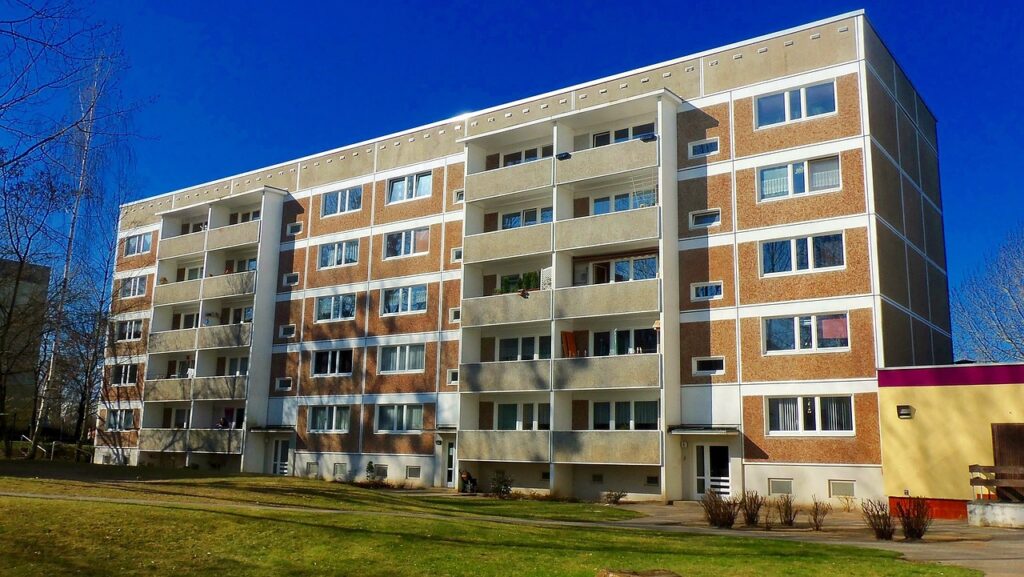Fire safety is a crucial aspect of property management, particularly for those responsible for blocks of flats, such as freeholders/landlords of blocks of flats and Houses in Multiple Occupation (HMOs). Fires can cause not only significant property damage but also pose severe risks to life. As such, it is imperative for landlords to understand and implement comprehensive fire risk assessments to safeguard the building, properties, and leaseholders.
This guide aims to provide landlords with essential information on fire risk assessments, highlighting their importance and the responsibilities involved in maintaining fire safety in residential properties.
What is a fire risk assessment?
A fire risk assessment for landlords is a systematic evaluation of a property to identify potential fire hazards, assess the risks, and determine the necessary measures to mitigate these risks. This process involves examining all aspects of the property, including the structure, occupancy, and use of the premises, to ensure that adequate fire safety measures are in place and maintained. The primary goal is to minimise the likelihood of a fire and ensure safe evacuation routes and procedures are in place should a fire occur.
Who is responsible for fire risk assessments?
The responsibility for conducting fire risk assessments falls on the ‘responsible person’. In the context of residential blocks of flats, this is typically the landlord, property owner, or managing agent. It is their duty to ensure that the assessment is conducted by a competent person, and that any necessary fire safety measures are implemented and regularly reviewed.
Are fire risk assessments required by law for flats?
In short, yes. Fire risk assessments are a legal requirement for landlords or the responsible person of flats and HMOs.
Landlords are legally obligated to comply to the three pieces of legislation that serve as the foundation of fire safety law: The Regulatory Reform (Fire Safety) Order 2005 sets the general framework for fire safety in England and Wales; the Fire Safety Act 2021 amends and clarifies this, particularly for multi-occupied residential buildings; and the Fire Safety (England) Regulations 2022 introduces specific measures for high-rise residential buildings in England.
The law mandates that any fire risk assessment should be “reviewed by the responsible person regularly so as to keep it up to date.” While the law does not specify what constitutes “regularly,” we recommend that landlords review their fire risk assessments at least once a year and update them whenever there are significant changes to the property or its occupancy.
Which properties need a fire risk assessment?
All residential properties require a fire risk assessment, but the level of assessment varies depending on the type and occupancy of the building. High-risk properties, such as blocks of flats, require more detailed and frequent assessments due to the higher potential for fire spread and the greater number of occupants.
Types of properties that require fire risk assessments include:
- Blocks of flats
- High-rise residential buildings (at least 7 storeys or 18 metres in height)
- Multi-occupied residential buildings with 2 or more sets of domestic premises
- Properties with communal areas
Essentially, any residential property with shared spaces or multiple occupants needs a comprehensive fire risk assessment to ensure the safety of all residents.
Consequences of non-compliance with fire safety regulations
Non-compliance with fire safety regulations can have severe consequences for landlords/responsible persons. These can range from hefty fines and potential imprisonment to the devastating loss of property and, most importantly, the risk of serious injury or death to tenants. On top of this, non-compliance can lead to legal disputes, damage to reputation, and difficulties in obtaining insurance coverage.
It is therefore crucial for the responsible to take their fire safety responsibilities seriously and ensure that they fully adhere to all relevant regulations. When it comes to conducting a fire risk assessment for landlords/freeholders/RMCs, it’s worthwhile considering the use of an expert managing agent who can handle the responsibility of fire safety compliance and ensure your peace of mind.
Fire safety responsibilities
In addition to fire risk assessments, landlords/freeholders/RMCs have a legal and moral obligation to ensure their properties are safe from fire risks.
Causes of fire
Understanding potential fire hazards and taking proactive measures can significantly reduce the likelihood of a fire.
Fires can start in any part of a property, even in unoccupied rooms. Common causes of fire in residential properties include faulty electrical appliances, unattended cooking, smoking, and heating equipment.
How to reduce the risks of fire
To reduce fire risks, the responsible person should implement the following safety measures and include these within their property’s fire risk assessments:
- Install smoke and carbon monoxide alarms in appropriate communal locations and maintain communal fire systems.
- Ensure all escape routes are accessible and free from obstructions.
- Conduct regular fire risk assessments and update when required.
- Install and maintain fire doors (communal – refer to lease on individual doors).
- Perform electrical safety inspections and Portable Appliance Testing (PAT).
- Carry out annual gas safety checks (if communal).
- Enforce a no-smoking policy inside the property.
- Educate leaseholders on their responsibilities, such as reporting potential fire risks and ensuring they are aware of fire hazards.
Conclusion
Prevention is always the best strategy when it comes to fire safety. Landlords/freeholders/RMCs bear the responsibility of adhering to the various fire regulations, prioritising tenant safety, and securing appropriate insurance coverage to safeguard against potential financial repercussions of fire-related damages.
Assigning a dedicated property manager to oversee your block of flats can alleviate the stress of managing fire safety regulations.
At Red Brick Management, we offer comprehensive property management services, including conducting fire risk assessments for landlords, ensuring compliance with fire safety regulations, and providing guidance on choosing the right insurance to protect you in the unfortunate event of a fire.
Contact us today to discuss how we can help you maintain a safe and compliant property.

